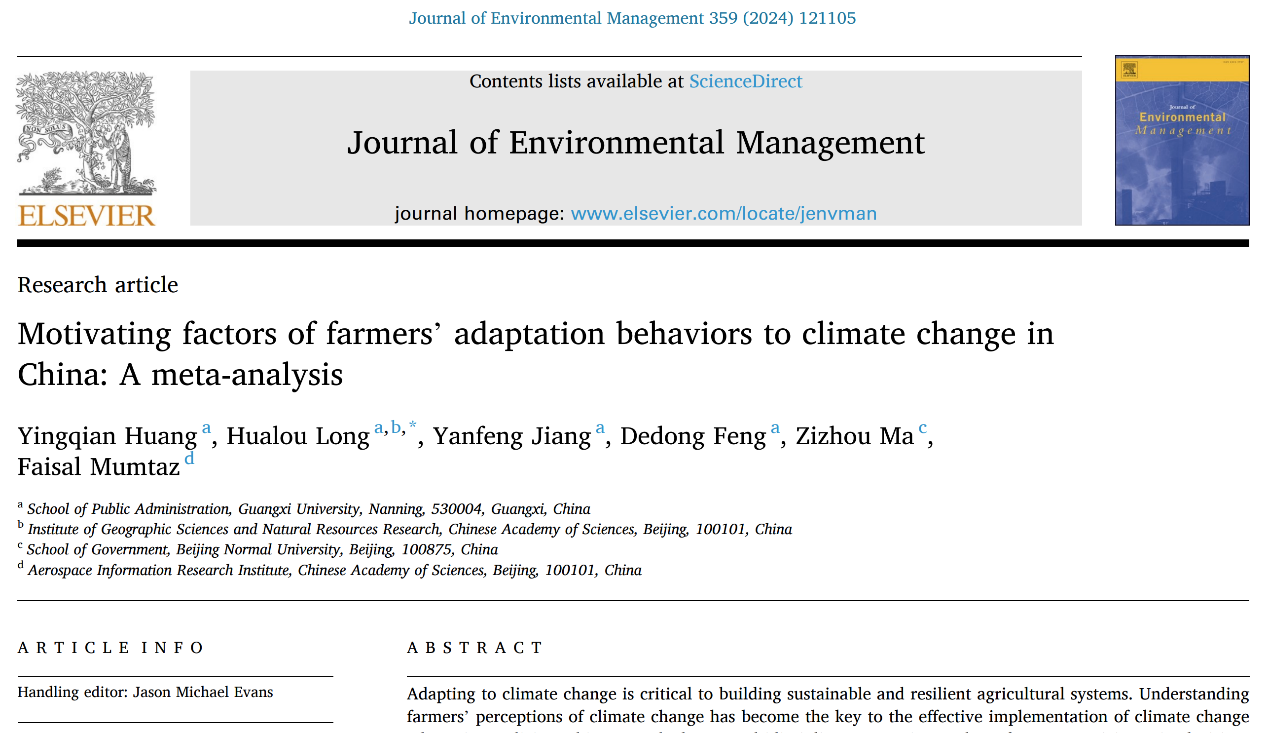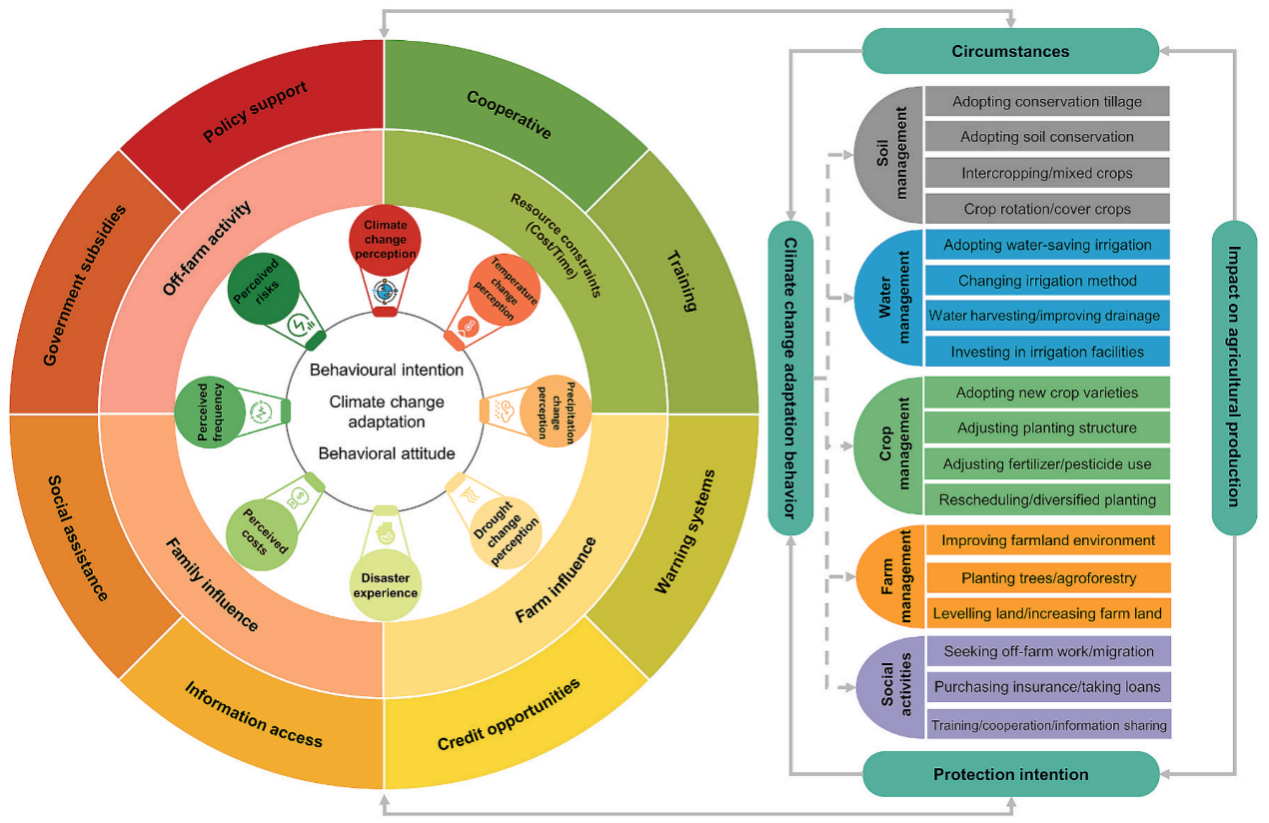Profile of the Author(s)
Huang Yingqian - Doctoral Student, School of Public Policy and Management, Guangxi University
Long Hualou - Doctoral Supervisor, School of Public Policy and Management, Guangxi University
Jiang Yanfeng - Assistant Professor, School of Public Policy and Management, Guangxi University
Feng Dedong - Doctoral Student, School of Public Policy and Management, Guangxi University
Ma Zizhou - Doctoral Student, School of Government, Beijing Normal University
Faisal Mumtaz - Doctoral Student, Aerospace Information Research Institute, Chinese Academy of Sciences
Published in
Journal of Environmental Management
Citation
Huang, Y.Q., Long, H.L., Jiang, Y.F., Feng, D.D., Ma, Z.Z., Mumtaz, F., 2024. Motivating factors of farmers’ adaptation behaviors to climate change in China: A meta-analysis. Journal of Environmental Management, 359, 121105.
Original Article Link
https://doi.org/10.1016/j.jenvman.2024.121105
Climate change adaptation is essential for creating sustainable and resilient agricultural systems. Gaining insight into farmers' views on climate change is pivotal for the successful implementation of adaptive policies. This interest has spurred multidisciplinary attention on how farmers make decisions regarding adaptation, offering valuable perspectives on enhancing the synergy between environmental shifts and agricultural production.

Farmers' adaptation behaviors to climate change involve decision-making under uncertainty, which can be proactive or reactive, as well as planned or unconscious, depending on how climate change impacts agricultural production. As climate change heightens the vulnerability of farmers reliant on natural resources, understanding the factors that drive or inhibit their adaptation decisions, and identifying effective measures to enhance their adaptive capacity, has become a central theme in climate change adaptation research. Behavioral economics related to farmers has played a significant role in this process, leading to the development of several theoretical frameworks, such as Protection Motivation Theory, Theory of Planned Behavior, Value-Belief-Norm Theory, Expected Utility Theory, and Prospect Theory. In reviewing these theories and methodologies from a field-specific perspective, there is a need for an integrated conceptual framework to encompass the various factors driving farmers' adaptation behaviors. This framework seeks to answer what influences farmers' climate change adaptation behaviors and aims to uncover the factors that either drive or limit farmers' adoption of adaptive practices (Figure 1).

Figure 1 Conceptual framework for understanding factors affecting farmers' adaptation to climate change
Empirical findings show that farmers often have inaccurate perceptions of precipitation changes, while psychological factors such as perception, experience, and risk attitudes significantly positively influence their adaptation behaviors (Figure 2). The high heterogeneity in climate change perceptions is largely driven by differences in climatic regions, indicating that the influence of climatic regions may moderate and weaken the positive relationship between climate change perception and adaptation behavior. The study also highlights the importance of implementing household-level interventions to improve farmers' ability to adapt to climate change. This can be achieved through support measures like income diversification, early warning information services, training, assistance, credit, subsidies, and other resources. Future research should delve deeper into understanding the mechanisms by which perception, experience, and risk interact to shape adaptation behaviors.

Figure 2 Meta-analysis findings on various influencing factors
Journal Overview
Journal of Environmental Management is an academic journal focused on the field of environmental science. Founded in 1973, it publishes original research related to the management of environmental systems and the improvement of environmental quality. The journal is classified as a Q1 journal in the SSCI (Journal Citation Reports), with an impact factor of 8.7 in 2023.

